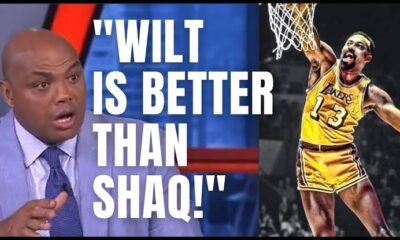American Football
Dolphins Coach Shows Why Team Can’t Succeed in AFC
The Miami Dolphins, boasting remarkable talent on their roster in recent seasons, have found themselves falling short of the success they’ve envisioned. One notable factor contributing to this shortfall is their unfortunate reputation for struggling in cold weather conditions, a label that has seemingly stuck with them.
Indeed, this label seems fitting. The Dolphins appear invincible when playing in the warmth of Miami’s late summer months. However, as any seasoned NFL observer knows, true championship-caliber teams are forged in the crucible of late-season games, where icy winds and adverse conditions prevail. Admittedly, the Dolphins boast a formidable team with a roster that surpasses many others in the league. Yet, a recent decision by their head coach, Mike McDaniel, has raised eyebrows and drawn criticism.
Talk about doing things with intent…
Mike McDaniel said his staff schedules meeting at times that end in “24” (3:24, 5:24, 7:24, etc.) to represent the 24 years it’s been since the Dolphins have won a playoff game
Miami hoping to snap that drought in 2024
— Marcel Louis-Jacques (@Marcel_LJ) June 6, 2024
Consider this: The last time the Miami Dolphins clinched a playoff victory was in the year 2000, a time when I myself was a mere three years old. It’s been a trying period for Dolphins faithful, though signs of hope have emerged under McDaniel’s leadership. With a commendable 20-14 record over two seasons, McDaniel has demonstrated his ability to lead. However, despite this success, the team’s postseason record remains unimpressive, standing at 0-2.
In what appears to be a curious attempt to address this playoff drought, the Dolphins have adopted a rather unconventional practice: ending meetings precisely at the 24th minute of each hour, symbolizing the 24-year gap since their last playoff triumph. This decision, while perhaps well-intentioned, has raised questions about its practicality and effectiveness. How does adhering to such a symbolic gesture translate into on-field success? Will the 24th minute of each hour magically transform the team’s fortunes on game day?
Mike McDaniel’s coaching style has often been described as quirky, embodying a “dude-bro” persona more commonly associated with college-aged individuals. While this unconventional approach may have its merits in certain contexts, the decision to emphasize symbolic gestures over tangible improvements raises concerns about the team’s seriousness and commitment to genuine progress.
Ultimately, the latest decision by the Miami Dolphins organization serves as a reminder of the challenges they face in their quest for success in the highly competitive AFC. While symbolic gestures may have their place, true progress will only come through substantive changes and a steadfast dedication to excellence on and off the field.
-

 Basket Ball8 months ago
Basket Ball8 months agoNBA Legends Explain Why Wilt Chamberlain Was Better Than Everybody. Take a look at what he said ⬇️⬇️
-

 Football3 months ago
Football3 months agoTransfer-News: Trauriger Abschied, da Kolbs Top-Stürmer Wechsel zustimmt…
-

 Uncategorized6 months ago
Uncategorized6 months agoWishing Anthony Delon a Happy Birthday: Celebrate with Him Today! 🎂
-

 Uncategorized6 months ago
Uncategorized6 months ago**Hollywood Icon Robert Redford Passes Away at 87
-

 Uncategorized8 months ago
Uncategorized8 months agoPat Metheny gives his explanation for retiring: “I know this would hurt my fans, but I have no other choice.”
-

 Uncategorized8 months ago
Uncategorized8 months agoAgnetha Fältskog explains why she decided to retire: “I have no choice but to do this, even though I know it will upset my fans.”
-

 Uncategorized8 months ago
Uncategorized8 months agoI bid you farewell: Pat Metheny declares his retirement date because of…
-

 Uncategorized6 months ago
Uncategorized6 months agoJoyful News: Anthony Delon and Sveva Alviti Announce They’re Expecting Their First Baby—Congratulations to the Happy Couple!






